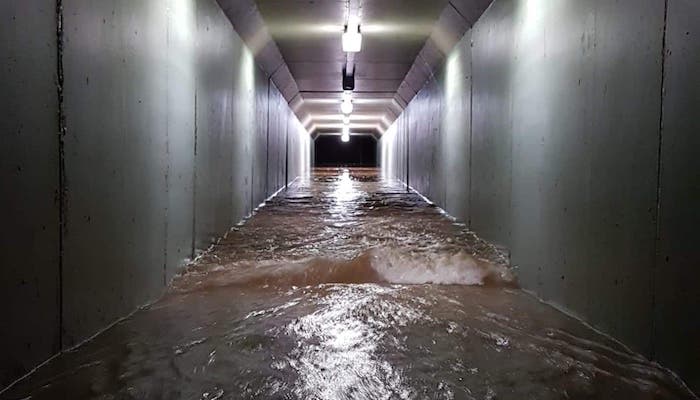
Australian Prime Minister Scott Morrison said he would recommend a national emergency be declared after recent floods across large parts of the east coast took 22 lives. Morrison announced the news during a visit to Lismore, New South Wales, where flooding killed four people last week.
“I intend to recommend to the Governor-General to make a National Emergency Declaration covering this severe weather and flooding event across New South Wales and Queensland to ensure all our emergency powers are available and that we cut through any red tape we might face in delivering services and support on the ground," Morrison said in a statement.
What does the state of emergency change?
The declaration was made possible by a new law passed in late 2020 following the devastating Australian bushfires in the previous Southern Hemisphere summer. Some of the flooded communities in the current emergency were battling wildfires two years ago.
The new status means flood victims can bypass providing identification documents to receive support payments. Under some circumstances, the federal government will also be allowed to act independently in areas where state governments hadn’t asked for assistance.
Natural disasters making life harder in Australia
While touring the worst-hit areas of New South Wales, Morrison said on Wednesday, "Australia is becoming a harder country to live in because of these natural disasters."
Floodwaters reached their peak in Queensland’s capital, Brisbane, Australia's third-most populous city, on February 28 after it was inundated by 80% of its usual annual rainfall in the previous three days.
More than 20,000 homes and businesses had been flooded in southeast Queensland alone and 13 people died.
Parts of New South Wales' capital, Sydney, Australia’s most populous city, were flooded after receiving almost 75% of its average annual rainfall since January 1, enduring the wettest start to a year ever recorded. Some communities witnessed the highest floods ever recorded in their locations.
Morrison called the flooding "a major catastrophe ... of national proportions."
In the past week, the government has paid out around AU$385 million (€253 million, $281 million) to flood victims nationally with plans to increase aid in Lismore, one of the hardest-hit towns, to provide food and shelter and other support services.
Frustrated residents
But many flood victims are angry that rescue by authorities didn't come earlier and relief efforts were not enough. If it hadn’t been for community members, "we would have been seeing a death toll in the hundreds of people,'' emergency management spokesperson Murray Watt told local media.
"While people are grateful for the assistance they've had from the army, there's just nowhere near enough of it," Watt added.
Although rainfall has now calmed, 40,000 people around New South Wales had been ordered to evacuate their homes, including dozens in Sydney.
On Wednesday, New South Wales' death toll climbed to nine as police found the body of a 50-year-old truck driver in floodwater in Sydney's outskirts.
The local Northern Beaches Mayor Michael Regan said some areas of Sydney had been hit with sudden flash floods and multiple landslips on Tuesday, with debris still blocking many roads on Wednesday.
"Yesterday was bizarre. It was intense. It was biblical,'' Regan told local television.
'The water is rising, no more compromising'
Morrison, who is lagging in polls ahead of an election before May, kept media away from his meetings with flood victims, which he said was to protect their privacy.
Meanwhile, television footage showed some people gathered in front of an emergency operations center Morrison visited, yelling, "The water is rising, no more compromising" and "fossil fuel floods."
Late last year, the prime minister's conservative government adopted a net-zero carbon emissions target by 2050, but climate activists are demanding more aggressive action.